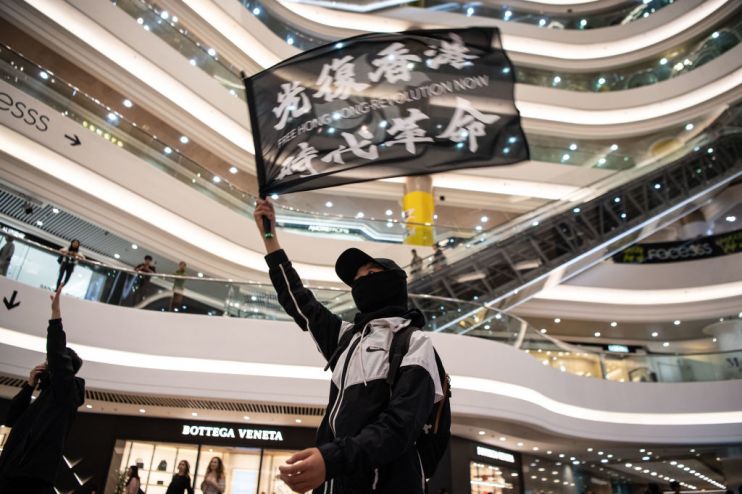Hong Kong’s democratic dreams have been trashed by Chinese power grab – the UK must use Magnitsky sanctions

The Chinese government’s actions in Hong Kong are a textbook case study of an authoritarian power-grab.
Redefine national security. Exercise emergency powers in the name of national security and use these powers to take total control. Lock up the opposition. Rig the elections. Rewrite the constitution.
The details of Beijing’s electoral reforms for Hong Kong have now been formalised and it marks the completion of the constitutional coup which began with the passage of the National Security Law in July.
The city’s democratic dreams have been dashed. Less than a quarter of Legislative Council seats will be democratically elected. Nearly half the legislators will be hand-picked by Beijing. A sinister new committee will work with the ‘national security police’ – Hong Kong’s new Stasi-style force – to pre-screen every candidate to ensure they are ‘patriotic’.
Meanwhile the purge of Hong Kong’s democrats and protestors continues. February 2021 and March 2021 have seen all the democrat slate candidates for election locked up and denied bail before their National Security Law trial. Ten young Hong Kongers who were detained for months incommunicado in mainland China have been returned to Hong Kong, but a number are now imprisoned and unable to access the legal representation of their family’s choosing.
The UK and China signed a treaty in 1984 which guaranteed that the rights and freedoms of Hong Kongers until 2047. That treaty now lies in tatters and is driving a wedge in Sino-British relations.
The Foreign Secretary issued a statement laying out the significance of these trends, stating that the Chinese government is in “ongoing non-compliance with the Sino-British Joint Declaration”.
The UK have already taken some action in response to this breach of international law – offering a pathway to citizenship for up to three million British National (Overseas) passport holders from Hong Kong – but the government must now take more assertive action to demonstrate that China breaching the good faith agreement signed between the two countries carries consequences.
One obvious next step the UK might consider would be to respond by designating leading Hong Kong officials under the Magnitsky regime.
Of course, in the last few weeks, sanctions have been another source of tension between London and Beijing. After the UK imposed human rights sanctions on four officials responsible for gross human rights violations in Xinjiang, a hysterical backlash from the Chinese government has seen leading Parliamentarians and political bodies sanctioned in retaliation.
Beijing’s decision to designate a former Conservative leader, the Chair of the Foreign Affairs Committee, the Conservative Party Human Rights Committee and even a legal chamber under the sanctions is a significant escalation. The UK sanctioned human rights violators and in response Beijing selected a range of human rights defenders.
There is an irony to the fact that two of Hong Kong Watch’s patrons have been sanctioned by the Chinese government before the British Government has taken any substantive action to show that China’s actions in Hong Kong will carry consequences. For a year now, parliamentarians have been calling for the Magnitsky regime to be applied to the officials responsible for the crackdown. The time has clearly come for the UK to take that step.
Yet the response should not stop there. Events in Hong Kong call for a wider rethink about the UK’s positioning towards China. The events demonstrate the increasing disregard that the Chinese government has for international law and point to the ways that the regime is looking to reshape international norms in its image. The way that businesses like HSBC and Cathay Pacific have been bullied into endorsing the National Security Law, or H&M have faced a mass boycott this week over its decision not to use Xinjiang cotton, provides lessons about the Communist Party’s strategies of economic coercion. Most ominously, events in Hong Kong may provide a roadmap for Beijing’s ambitions in Taiwan.
All of these challenges require a coordinated international response. The British government’s integrated review on foreign policy did not adequately frame a China strategy. Events in Hong Kong show we need one. This must cut across government and involve identifying areas where we are vulnerable to similar coercion by Beijing. It should also prioritise collaborating with allies to develop strategies for the future.
For the first time in decades, one of the world’s leading powers is an authoritarian state with little regard for the liberal international order we are now accustomed to. Hong Kong shows why it is vital we take this challenge seriously.